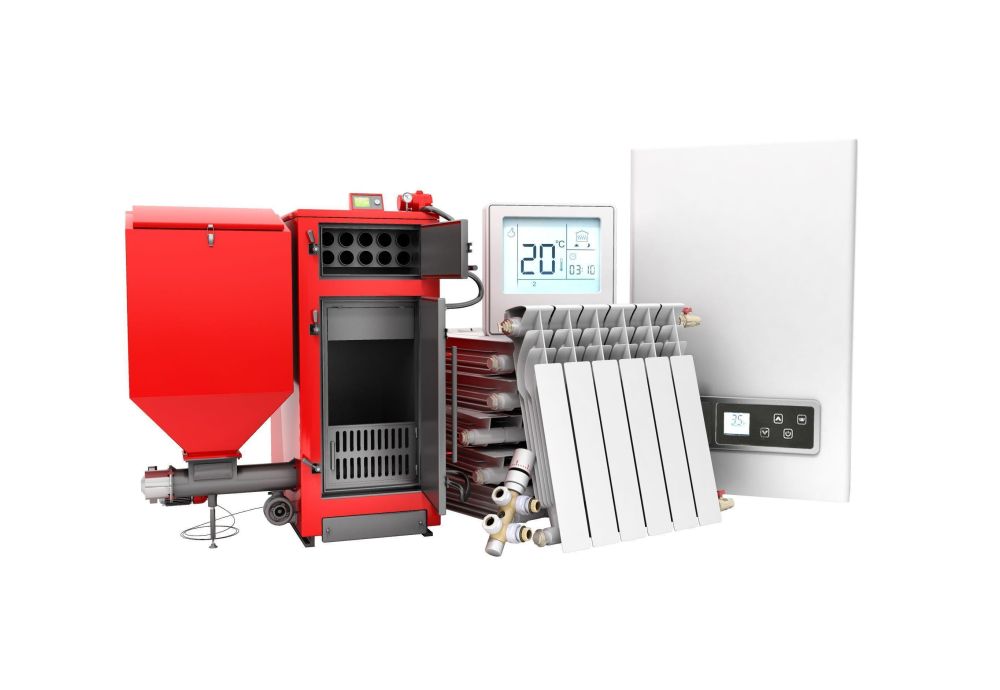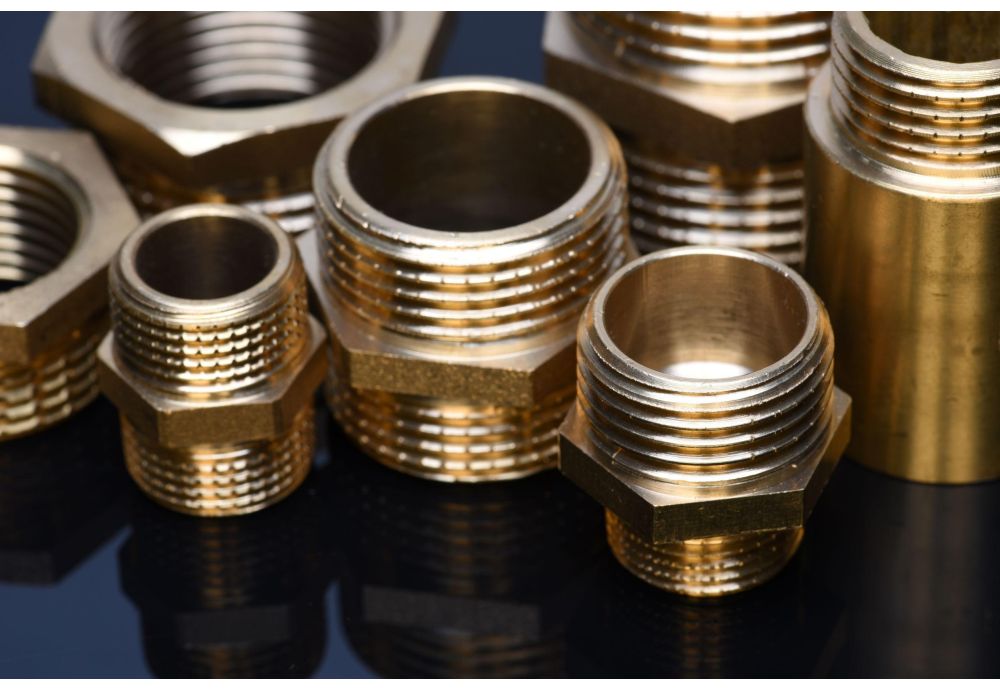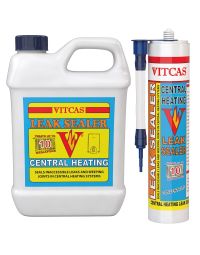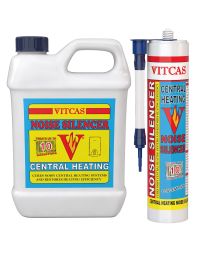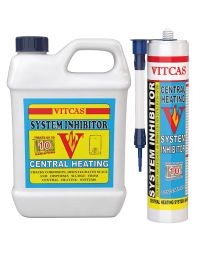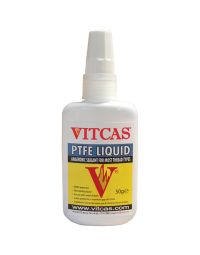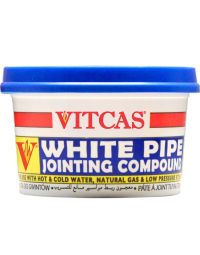The Central Heating Inhibitor is an essential component for maintaining the efficiency and longevity of any central heating system. This chemical solution is specifically designed to protect the internal components of a heating system from damage and reduce the risk of system breakdown. In this article, we will explore the science behind the central heating inhibitor, the different types of systems they can be used in, and how they can help homeowners save money on energy bills and costly repairs.
A central heating inhibitor works by preventing sludge build up, formation of limescale and corrosive substances. This is important because such build up can end up negatively impacting the central heating system via increased energy consumption, and potential damage to the boiler, radiators, and pipework. By using a central heating inhibitor, homeowners can ensure their heating system remains in optimal condition for a longer period, reducing the need for expensive repairs and replacements.
In addition to the financial benefits, a central heating inhibitor also contributes to a more environmentally friendly home. By keeping the heating system running efficiently, less energy is consumed, and fewer carbon emissions are produced. This makes a central heating inhibitor a valuable tool for homeowners looking to reduce their carbon footprint and contribute to a more sustainable future.
The science behind a central heating inhibitor
The science behind a central heating inhibitor revolves around its ability to protect the metal components of a heating system from corrosion and scale buildup. Corrosion occurs when metal reacts with oxygen and moisture, resulting in the formation of rust and corrosive debris. Scale, on the other hand, is a buildup of minerals, such as calcium and magnesium, which can cause blockages and impair heat transfer within the system.
Central heating inhibitors contain a range of chemicals that work together to combat these issues. Some inhibitors use phosphates, which react with the dissolved minerals in the water to create a protective layer on the metal surfaces. This layer prevents further reactions with oxygen and moisture, reducing the risk of corrosion.
Another key component of a central heating inhibitor is the inclusion of oxygen scavengers. These chemicals work by removing dissolved oxygen from the system water, which in turn reduces the potential for corrosive debris to form. Additionally, certain types of inhibitor use dispersing agents that help to break up and remove any existing sludge or limescale, further enhancing the overall system efficiency.

Types of central heating systems
There are several different types of the central heating system, each with its own unique requirements for inhibitor use. Some of the most common types of systems include:
-
Combi boiler systems: These systems combine both central heating and domestic hot water into one single unit. Combi boilers require inhibitor solutions specifically designed for use in combination boilers, as they must be compatible with the system's components and able to guard against rust and scale.
-
Open vented systems: In an open vented system, the expansion and feed tanks are open to the atmosphere. These systems requires an inhibitor that can safeguard against and prevent the buildup of sludge and scale in both the central heating and domestic hot water components.
-
Sealed systems: Sealed systems are closed-loop systems that rely on pressure vessels and expansion tanks to accommodate changes in systemic pressure. An inhibitor used in sealed systems must be able to work effectively under the higher pressures and temperatures found in these systems while still providing protection against formation of corrosive substances and scale.
Regardless of the type of central heating system, it is essential to choose a central heating inhibitor that has been specifically designed for use in that type of system. This ensures compatibility with the system's components and maximizes the effectiveness of the inhibitor.
The role of magnetic filters and radiator valves
In addition to using a central heating inhibitor, there are several other components that can help maintain the longevity of a heating system. One such component is a magnetic filter, which is installed in the system's pipework and uses magnets to attract and capture iron oxide particles. By removing these particles from the system's water, a magnetic filter help to reduce the risk of blockages.
The radiator valve is another essential component for maintaining the system's operation. Thermostatic radiator valves (TRVs) enable you to control the temperature of individual rooms by adjusting the valve's setting. By using TRVs, householders can ensure that only the rooms that require it are heated, thus reducing energy consumption and lowering energy bills.
Understanding open vented systems and boiler pressure
Open vented systems rely on a feed and expansion tank to accommodate changes in systemic pressure. When the system is heated, the water within the pipes and radiators expands, causing the pressure inside to increase. The excess pressure is then released into the expansion tank, preventing damage to the system's components.
The boiler's pressure is an essential factor to consider when maintaining the open vented boiler system. If the pressure is too low, the boiler may struggle to deliver heat efficiently, leading to increased energy consumption and higher energy bills. Conversely, if the pressure is too high, it may be at risk of damage due to excessive pressure on its components.
Homeowners with open vented systems should regularly check their boiler pressure and adjust it as necessary to ensure it is operating at peak performance. This can be done by adding or removing water via the filling loop or by adjusting the pressure relief valve.
Importance of annual boiler service and maintenance
Regular boiler service is crucial for maintaining any central heating system. An annual boiler service should include a thorough inspection of the boiler and its components, as well as any necessary adjustments or repairs to ensure perfect boiler and optimal performance.
During a boiler service, a qualified heating engineer will also check the system for signs of corrosion and scale buildup. If necessary, they may recommend the addition of central heating inhibitor which protects the system.
In addition to the annual service, homeowners should regularly carry out tasks, such as checking the boiler pressure, bleeding radiators, and cleaning the magnetic filter. These simple tasks aim to address areas of concern before they exacerbate, which saves householders the headache down the line.
Tackling internal corrosion with a radiator inhibitor
Internal corrosion within radiators is a common issue that can lead to reduced effectiveness and potential damage to the heating system. A radiator inhibitor falls under chemical solutions specifically designed to safeguard the internal surfaces of radiators from the effects of corrosion.
This type of inhibitor works by forming a protective layer on the metal surfaces within the radiator, preventing any further reactions with oxygen and moisture. This protective layer also helps to reduce the formation of sludge, rust and scale.
When choosing an inhibitor product, it is important to consider its compatibility with the type of radiator in use. Different types of radiators may require different types of inhibitors, so it is essential to add inhibitor that is specifically designed for use in those types of radiators.
In addition to using a radiator inhibitor, homeowners can also take steps to prevent internal corrosion within radiators. This includes using a magnetic filter to remove any iron oxide particles from the system's water and ensuring that it is properly balanced to prevent areas of stagnant water to build up within the radiators.
Tips from heating engineers: inhibitor dosing adaptors and drain valves
When adding central heating inhibitor to a system, it is important to ensure that it is properly distributed throughout the system. This can be achieved using an inhibitor dosing adaptor, which allows you to add inhibitor directly to the system's water.
Inhibitor dosing adaptors are typically installed on the filling loop of the system and can be used to add the inhibitor solution to the system's water at the correct concentration. This ensures that the inhibitor is evenly distributed throughout, providing maximum protection against corrosion and scale buildup.
Another essential component for maintaining the longevity of a central heating system is a drain valve. These valves allow the system's water to be drained, which is necessary for tasks such as adding central heating inhibitor or carrying out a power flush.
When installing this valve, it is essential to ensure that it is located in a suitable place and is easily accessible. This will make it easier to carry out maintenance tasks.
Enhancing performance with power flushes and scale reducers
Over time, your central heating system can become clogged with sludge and scale, which can reduce efficient operation and increase energy consumption. Power flushing is a process that involves using high-pressure water to remove scale buildup from the system's pipes and radiators.
Power flushing is typically carried out by a qualified heating engineer and can significantly improve the effective operation of a heating system. In addition to power flushing, homeowners can also use scale reducers to help prevent the formation of scale.
Scale reducers work by using a magnetic field to alter the crystal structure of calcium and magnesium ions, preventing them from forming scale. By utilising both power flushing and a scale reducer, homeowners can ensure that their central heating continues running smoothly, while decreasing their energy consumption and the risk of a potential break down.
Expansion tanks and flexible tubes
In addition to using a central heating inhibitor and carrying out regular maintenance tasks, there are several other components that can help to improve the functioning and prolong the life span of a heating system. Expansion tanks, for example, are essential for accommodating changes in systemic pressure, preventing damage to the system's components.
Flexible tubes are another important component of a heating system, allowing for movement and flexibility within the system's pipework. This more flexible tube can help to prevent damage to the pipes and ensure optimal condition.
The magnetic filter, as mentioned earlier, is also an essential component for maintaining the system's efficient operation. By removing iron oxide particles from the system's water, the magnetic filter helps to prevent blockages.
The process of adding inhibitor to your central heating system
Adding central heating inhibitor is a simple process that can be either carried out by a qualified heating engineer or by the householder themselves.
The first step is to ensure that the system is properly drained, either through the use of drain valves or by removing the radiator bleed plug and draining them individually.
Once it has been drained, the inhibitor can be added to the system's water using an inhibitor bottle or dosing adaptor. The correct concentration of inhibitor will depend on the system's size, so it is important to follow the manufacturer's instructions carefully. A full bottle is generally not necessary to use. However, no damage will be done if you add more inhibitor than you requ
After you add inhibitor, you can refill with fresh water and any necessary adjustments can be made to the systemic pressure. It is important to ensure that there is even distribution of the inhibitor, so it may be necessary to run the system for a period of time to allow the inhibitor to circulate.
Conclusion: Maximising the lifespan of your heating system with central heating inhibitors
Central heating inhibitors are essential to prolong the life span of your central heating system. By preventing the buildup of sludge, scale, and corrosion, the central heating inhibitor can help homeowners save money on energy bills and reduce the need for costly repairs.
In addition to adding inhibitor, homeowners can also take steps to improve the overall operation of their central heating. This includes carrying out regular maintenance tasks, installing components such as magnetic filters, or using power flushing or a scale reducer to remove limescale or other types of buildup.
By following these tips and using an inhibitor, homeowners can ensure that their heating system remains in optimal condition for the long run, reducing the need for frequent repairs and replacements. This will be sure to guarantee a warm, comfortable home all year round!











